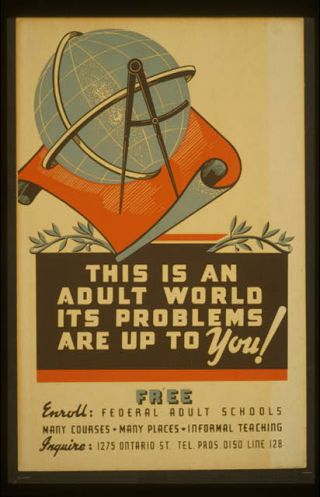Aging
Who Is an Adult?
Moving beyond the standard definitions.
Posted March 3, 2015 Reviewed by Matt Huston

What does it mean to be an adult?
There is a child's definition: Someone who is older, authoritative, decisive, and doubt-free.
There is the post-World War II definition: someone who is married, has children, and, if male, supporting his family, and, if female, caring for her family.
Legal definitions vary. A person can drive at 16, vote and serve in the military at 18, drink at 21, and rent a car at 25.
There’s today’s kidults: The adults who refuse to act their age, who embrace their inner child, play videogames, wear youthful fashions, read books targeted at adolescents, and listen to teen music.
Then there is the psychological definition: Someone who is self-sufficient and responsible for her or his own decisions.
What are missing are two other conceptions of adulthood that need to be reclaimed.
The first is an older ideal of adulthood that dominated the Hollywood screen during the 1930s and 1940s: Someone who is worldly, sophisticated, knowing, and urbane.
To be an adult, in this view, was not to be staid, sedate, or stolid and sober. It was to be like Myrna Loy or Barbara Stanwyck, or Humphrey Bogart or Cary Grant—stylish, polished, and elegant. It was to be verbally adroit: witty in an adult manner, through innuendo, like Mae West, understatement, like William Powell, or humor that was caustic or mordant, like Bette Davis’s. Even the laconic John Wayne had a way with words, with his slow western drawl exuding emotion: at times wry or amused or contemptuous. Above all, it was marked by a style that dignified and characterized by a certain grace that seems to have disappeared.
The other definition that needs to be salvaged associates adulthood with maturity, caring, responsibility, reliability, and experience. What distinguishes adults from those who are younger is responsibility for others. Adults live not for themselves alone, but for those who depend on them, whether these are their children, a partner, aging parents, friends, or co-workers.
Adults have duties and obligations in a way that children, adolescents, and most twenty-somethings do not. These responsibilities make the lives of adults more stressful and demanding than at any other stage of life. But it is these duties that invest life with meaning and purpose.


